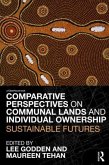Since the broad-based assault on state planning led by the Reagan and Thatcher administrations in the 1980s, different national planning cultures have faced increasing deregulation and privatization. Arguing forcefully against the American notion that free market-driven urban planning is the only sensible model, this book highlights the important role governments and states still play in making better and more equitable cities. Bringing together leading planning and urban scholars including Manuel Castells, John Friedmann (founder of the global cities thesis), Leonie Sandercock, and Eugenie Birch, it investigates urban planning across the world and in different cultures. It asks: * What is the function of state planning in the era of neoliberal economic globalization? * Is it still beneficial to the public it serves? * How much has it suffered since the attacks on it in the 1980s? By focusing on such a wide and international range of case studies (including Hong Kong, India, Iran, Mexico, The US, The UK, and Australia, amongst others), this unique book will be required reading for students and scholars of international planning.
Bringing together leading planning and urban scholars, and including fascinating international case studies, this unique book investigates urban planning across the world and in different cultures.
Hinweis: Dieser Artikel kann nur an eine deutsche Lieferadresse ausgeliefert werden.
Bringing together leading planning and urban scholars, and including fascinating international case studies, this unique book investigates urban planning across the world and in different cultures.
Hinweis: Dieser Artikel kann nur an eine deutsche Lieferadresse ausgeliefert werden.








